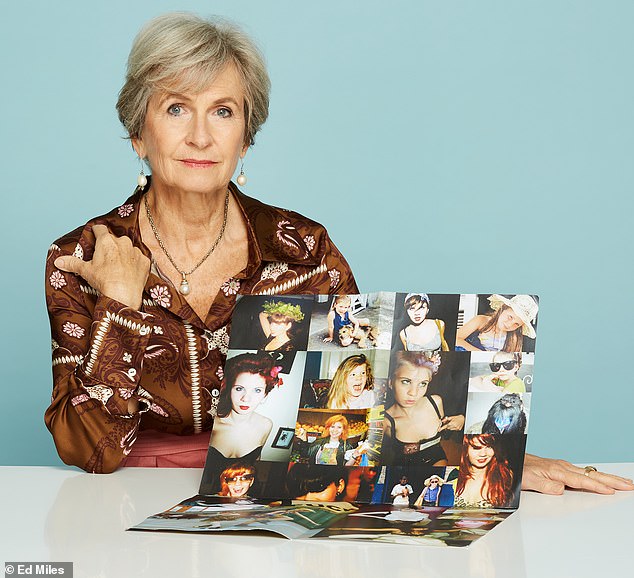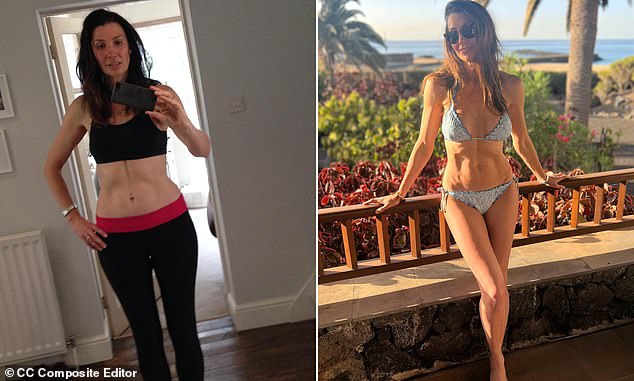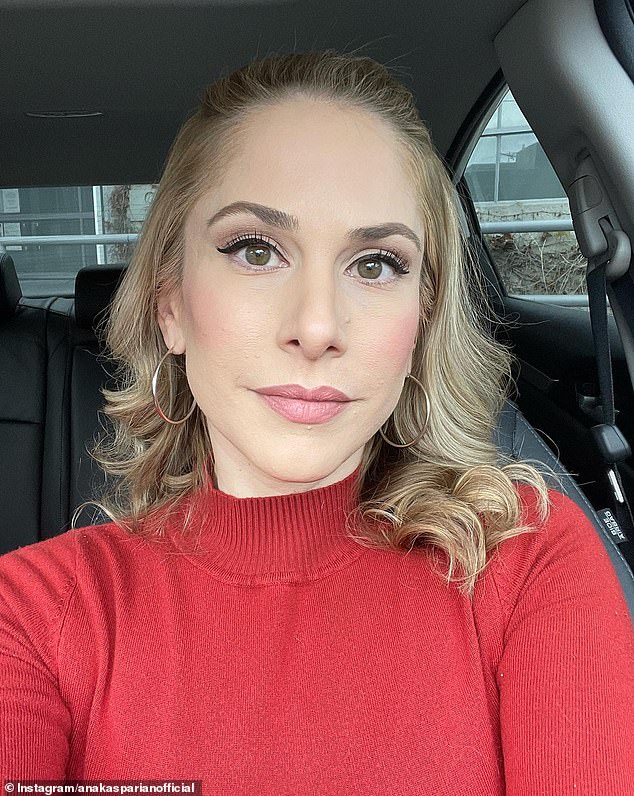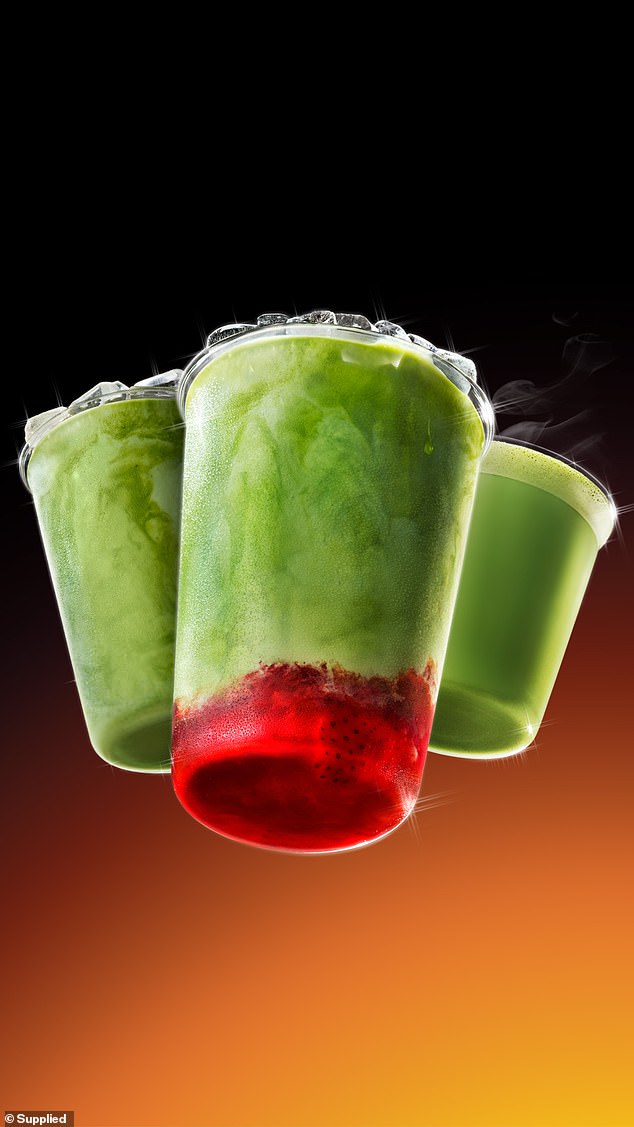During her teenage daughter’s wilder years, Vicky Unwin frequently warned her about the dangers of taking drugs.
A charismatic, popular girl, Louise had an active social life, and Vicky was militant in ensuring she knew the risks of the likes of cocaine and MDMA.
‘She always said to me, “Mum I’m not stupid, that stuff ruins your life.” And she really wasn’t stupid – quite the opposite,’ says Vicky. ‘She really wanted to do something creative and fulfilling with her future.’
Yet in the end it was a drug about which Vicky, 67, had little previous knowledge that cut off her daughter’s life in its prime.
In March 2011, at just 21, Louise drowned in the bath after taking an unintentional overdose of ketamine, a powerful anaesthetic that has hallucinogenic effects and can induce short-term feelings of euphoria. Louise’s death devastated her family. You may imagine that given such a senseless loss Vicky would wish to do everything she could to take ketamine off our streets.
In fact, she feels the opposite, fervently believing the drug needs to be legally regulated, decriminalised – and sold legally by pharmacists or other licensed outlets.
This is the only way, she believes, to prevent other families suffering the same grief. ‘Louise died of ignorance,’ she says. ‘People who take this drug have no idea of the risks of addiction and self-medication, which can lead to incontinence and ultimately the removal of the bladder.
‘Giving it to excited teenagers or people in their early 20s without any instruction is like handing a chainsaw to a toddler. Alcohol is legal and licensed, with percentage strength on the side, which stops people accidentally killing themselves – why not ketamine?’
Some experts argue that criminalising a drug like ketamine gives a strong message of its dangers; that decriminalising it risks legitimising it and possibly even making it as ubiquitous as alcohol.

During her teenage daughter’s wilder years, Vicky Unwin, pictured, frequently warned her about the dangers of taking drugs

A charismatic, popular girl, Louise, pictured, had an active social life, and Vicky was militant in ensuring she knew the risks of drugs like cocaine and MDMA
Vicky argues that this is missing the point: ‘Ketamine never has been and never will be as widely used as alcohol and it’s well known that criminalisation just makes drugs more dangerous as it drives them underground.’
Once seen as something of a fringe ‘club drug’, statistics reveal ketamine use has reached record highs in the UK. Recent Home Office figures show an estimated 299,000 people aged 16 to 59 reported using ketamine in the year ending March 2023 in England and Wales.
At the same time, NHS Foundation Trusts across the country have reported huge spikes in cases of ketamine addiction driven in part by an increasing number of people taking the drug at home rather than in an occasional party setting, while a recent study by King’s College London showed deaths due to illicit ketamine use have increased 20-fold since 2014.
In response to these rising numbers, the Home Office announced it was considering reclassifying the drug from a Class B substance to a Class A – meaning that possessing or dealing the drug would carry the harshest penalties.
Policing Minister Dame Diana Johnson said: ‘Ketamine is an extremely dangerous substance and the recent rise in its use is deeply concerning…. It is vital we are responding to all the latest evidence and advice to ensure people’s safety.’
But Vicky believes making it a Class A drug would be a mistake. ‘The figures are so clear: despite the reclassification from Class C to Class B in 2014, there was a massive spike in usage and deaths,’ she says. ‘For Louise and countless other young people who’ve been taken from us in their prime, this has to change.’
She acknowledges that she did not always feel this way: in the grief-stricken aftermath of Louise’s death, she took to social media pleading with people simply not to take it.
‘I was saying, “For Christ’s sake, kids, please stop taking this terrible drug, it killed my daughter.” But in time I realised it was pointless, because when something is cheaper than alcohol – you can pay £5 for a bump, which is cheaper than buying a drink in the pub – they will take it whatever the risks.’
Vicky is certainly a persuasive advocate, one half of a high-flying couple who have pursued successful international careers in London, Switzerland and Singapore courtesy of her work in educational publishing and mainstream media, and her husband Ross’s position as partner in an accountancy firm.
Married at 25, their son Tommy came along when Vicky was 30, followed two years later by the ‘cherubic’ Louise, a giggly and joyful child with blonde ringlets.

Vicky Unwin with her daughter Louise, affectionately known as ‘Little Lou’
After spending some time in Oxfordshire, the family settled in North London, where Louise, affectionately known as ‘Little Lou’, grew into what Vicky wryly calls ‘a pretty feisty teenager’ with a near unmatchable zest for life and an appetite for rebellion. ‘Just like her mother,’ she smiles.
At her private girls’ school, Louise was known for her ‘bonkers’ outfits and dyeing her hair green.
‘For me it was a case of pick your battles,’ she says.
‘And the funny thing was that the teachers never really got cross with her because she had this way of just making you love her. She packed so much into her short life.’
There was a point when Vicky suspected her daughter was dabbling in cannabis, so she broached the topic: ‘We’d talked openly about drugs from her being around 14, not least because she knew that I had been in trouble for taking cannabis at the same age. I felt – hoped – she could be open with me.’
Louise got good GCSEs and three A-levels before starting a foundation course at the London College of Fashion. After that, she took a job as a visual merchandiser at retailer New Look and moved to Clapton, East London with a friend.
Only later did Vicky learn that her flatmate was a serious ketamine addict. ‘I didn’t know at the time, because no-one really knew about ketamine, but I imagine now that it’s probably why Louise started using it,’ she reflects.
Three months before her death, Louise flew to Australia – the airfare paid for as her 21st birthday present from her parents – to visit a friend, having the time of her life.
‘I know from her friends that she didn’t take ketamine during that time’ says Vicky. ‘It meant her tolerance dropped dramatically, which I believe played a huge part in what happened.’
A month later, Vicky saw her daughter for the last time – a week before she died.

Vicky with Louise, who was known at her private girls’ school for her ‘bonkers’ outfits and dyeing her hair
‘She cooked me a lovely dinner, and we talked about gardening. She was so full of beans about the future,’ she recalls.
In their last phone conversation, the night before Louise’s death, she told her mother she had completed her application to study graphic design at the Chelsea College of Art. ‘I told her how proud I was of her,’ she says.
Yet within just 24 hours those plans would be laid to waste. On the evening of Wednesday, March 2, 2011, Louise took ketamine at home with her friends.
Later, Vicky learned her daughter had weighed out what she thought was a safe dose on a set of scales – only to make a fatal mistake.
‘Everybody got the same dose,’ says Vicky. ‘She was 5ft 1in and hadn’t had any ketamine for some time. And the boys and her flatmate were much taller, and I think more regular users, which meant their bodies could tolerate it more.’
When her friends departed and her flatmate went to bed, Louise ran a warm bath to help her come down from the high so she could go to sleep, a decision that proved fatal: at some point she slipped under the water and drowned.
Her body was discovered by her flatmate.
The first Vicky knew of the tragedy was when her husband came flying through the door of their home in Geneva, where they were living at the time, the following morning.
‘He said, “Something terrible’s happened. It’s Louise, she’s dead.” He had been told she had died from a drug overdose in the bath,’ she says.
The couple boarded the first flight to London – ‘I don’t know how we got home,’ Vicky says now – to navigate the grim milestones that accompany such a desperate loss. There were police visits, a post-mortem and a visit to the morgue which Vicky describes as one of the worst moments of her life.
‘I think it was then that I was forced to realise she was actually dead,’ she says, her voice choked with emotion at the memory.
Between them, however, Ross, Vicky and Tommy, then 23, were determined that Louise’s funeral – attended by so many people that it had to be relayed on speakers to crowds gathered outside the crematorium – would be a joyful celebration of her life, filled with poems and the eclectic music she loved, from jazz to rock, and ending with a rousing rendition of Cabaret.
It was at the wake at the family home, also filled to the brim with Louise’s many friends, that Vicky learned the true extent of ketamine use in her daughter’s social circles.
‘They were telling me their ketamine stories, that taking it was cheaper than going to the pub,’ she says. ‘I had absolutely no idea this was the case.’

Vicky believes making it a Class A drug would be a mistake. ‘Despite the reclassification from Class C to Class B in 2014, there was a massive spike in usage and deaths,’ she says
It proved the start of a journey in which Vicky, supported by Ross, decided to learn everything she could about ketamine – a quest initially focused on educating children about the dangers.
‘Over time, I realised that reclassifying the drug was just not the right approach,’ she says. ‘The bottom line was that young people were – are – always going to take it despite the warnings.’
Those feelings were consolidated when, in 2019, she was asked to become a trustee – she is now chair – at drug policy foundation Transform, which campaigns for a system of legal regulation for drugs. Many experts, however, strongly argue legalisation only leads to an increase in addiction and normalisation among young people.
Dorset’s Police and Crime Commissioner David Sidwick, who is joint lead on alcohol and substance misuse for the Association of Police and Crime Commissioners, is among those who believe ketamine should not only remain criminalised, but should be made a Class A substance. He said: ‘Ketamine is highly addictive, and reports suggest its use is rising among young people. It is crucial we act now to prevent further harm – lives have already been lost.’
But Vicky doesn’t think criminalisation is working.
‘Ketamine is such a dangerous drug I’d much rather people didn’t take it at all, but we don’t live in that world,’ she says.
‘Drug deaths in the UK are the highest in Europe, and they’re rising. Cocaine is a Class A drug, but usage is still going up. We all want our kids to be safe, our streets to be safe, but the sad truth is that current government policy is not helping to achieve that.’
This resolution has only been further strengthened since, two years ago, Vicky experienced ketamine herself – albeit in a medical setting.
Following a painful ski accident which left her with a dislocated and broken shoulder, Vicky was offered ketamine to offset the pain while surgeons pushed her shoulder back into its socket.
‘The doctors told me the best thing to help with the pain while they worked on me would be ketamine,’ she says.
‘I said yes, and not only did it take the pain away, but I had this deep dreaming sleep with visions of colour.’ Poignantly, it enabled her to understand why her daughter had succumbed to ketamine’s seductive grip. ‘It helped me realise how young people chase those feelings. And I felt, I suppose, that a really important part of being able to lecture people, is to know of what you speak. And now I do,’ she says.
Vicky relates this not to glamorise ketamine but to illustrate its allure. ‘Human nature has always been curious, and the more you ban things, the more they go underground and become increasingly attractive,’ she says.
Louise would be 35 now, and Vicky can only imagine the woman she may have become. ‘You don’t just lose a person, you lose their whole future, the children they didn’t have, the plans and dreams they never got to experience,’ she says.
‘She would have had a baby for sure, and I feel so sad that she didn’t get to do that.’
For a long time, Vicky could not go to weddings, and struggled when her friends talked joyously of their own daughters. She still misses Louise desperately. Each year, family and friends mark her passing on her birthday and the anniversary of her death, gathering at a memorial bench and toasting her memory.
‘She lit up so many people’s lives,’ Vicky says now.
It is in that same spirit that Vicky says she will continue her crusade.
‘I know Louise would want me to do everything I could to stop others losing their lives in such a terrible, pointless way,’ she says.








